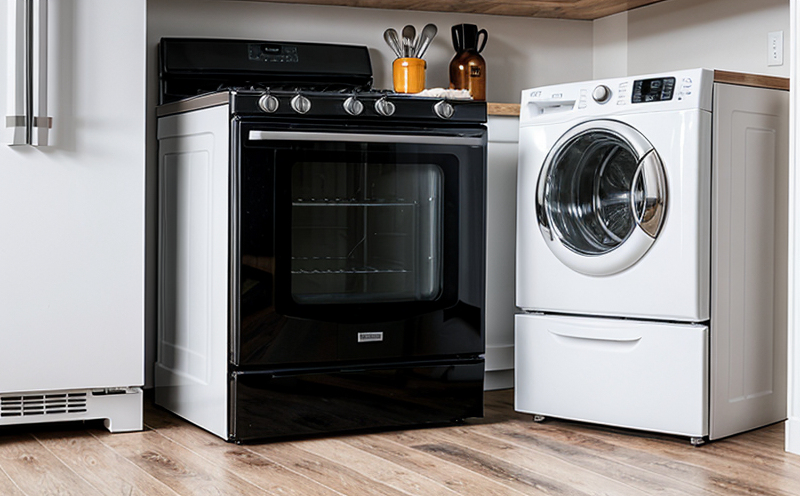Bluetooth Connectivity Testing in Appliances
Bluetooth connectivity is a critical feature that enhances user experience and convenience across various household appliances. From smart fridges to washing machines, the integration of Bluetooth technology allows seamless communication between devices, offering users enhanced control, monitoring capabilities, and remote management options. Ensuring robust and reliable Bluetooth connectivity in these appliances is paramount for product safety, performance, and consumer satisfaction.
Bluetooth testing involves a series of rigorous checks that ensure the device adheres to relevant standards such as IEEE 802.15.1 and ISO/IEC 7498-2. These tests are designed to evaluate the Bluetooth module's ability to connect, maintain stable connections, and perform data transfer in various environments. The testing process includes evaluating the device’s compliance with international standards for electromagnetic compatibility (EMC) and ensuring it operates within safe limits.
One of the key challenges in Bluetooth connectivity testing is the variability of environmental factors such as signal interference from other devices, temperature fluctuations, and humidity levels. To address these variables, we employ a combination of controlled laboratory environments and real-world simulation tests to ensure comprehensive coverage of all potential use cases. This approach guarantees that the tested appliances meet stringent quality assurance criteria.
The testing process typically involves multiple stages, including initial setup, configuration checks, connection stability tests, data transfer speed evaluations, and interoperability assessments with other Bluetooth-enabled devices. Each stage is meticulously documented to provide a detailed report on the appliance’s performance and compliance status. Our team of experts uses state-of-the-art equipment such as Bluetooth analyzers and spectrum analyzers to conduct these tests accurately and efficiently.
Real-world usage notes play a crucial role in validating the results obtained from controlled laboratory environments. For instance, simulating various household scenarios helps identify potential issues that might arise under different conditions. This includes testing appliances during peak connectivity times when multiple devices are active simultaneously or assessing performance in low signal strength areas within homes.
In addition to technical aspects, we also consider ergonomic factors such as ease of pairing with other Bluetooth devices and user interface design for intuitive operation. Compliance with relevant industry standards is ensured through rigorous adherence to guidelines set forth by organizations like IEEE and ISO/IEC.
Why It Matters
The importance of Bluetooth connectivity testing cannot be overstated given its growing prominence in modern household appliances. By ensuring reliable connections, fast data transfer rates, and seamless integration with other smart home devices, manufacturers can enhance user satisfaction while maintaining high levels of safety and security.
- Improved User Experience: Seamless connectivity enhances convenience by allowing users to manage their appliances remotely or integrate them into a larger ecosystem of connected devices.
- Safety Compliance: Meeting regulatory requirements ensures that products are safe for use and do not pose risks to consumers.
- Enhanced Performance: Thorough testing helps identify any flaws early in the development process, leading to better-performing appliances.
Industry Applications
Bluetooth connectivity testing finds applications across numerous sectors within consumer electronics and beyond. Commonly found in smart home gadgets like thermostats, lighting systems, and security cameras, it also extends to more traditional appliances such as refrigerators, dishwashers, and washing machines.
- Smart Home Integration: Appliances that can connect wirelessly allow homeowners to control multiple devices from a single interface or mobile app.
- Remote Monitoring: Users can monitor appliance usage patterns remotely, optimizing energy consumption and extending product lifespan.
Quality and Reliability Assurance
To ensure the highest standards of quality and reliability in Bluetooth connectivity testing, we adhere strictly to international standards including IEEE 802.15.1 and ISO/IEC 7498-2. Our comprehensive approach covers all aspects from initial setup through final certification.
- EMC Testing: Ensures compliance with electromagnetic compatibility regulations to prevent interference between devices.
- Data Transfer Speed: Evaluates the efficiency of data exchange over Bluetooth connections to meet consumer expectations for performance.





